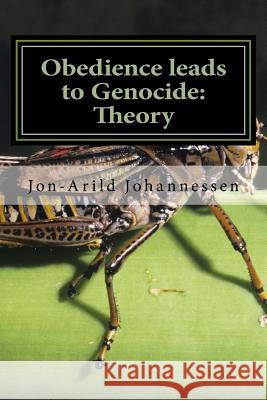Obedience leads to Genocide Theory, moral implications and examples: Obedience-The road to evil acts » książka
Obedience leads to Genocide Theory, moral implications and examples: Obedience-The road to evil acts
ISBN-13: 9781535503853 / Angielski / Miękka / 2016 / 194 str.
Obedience leads to Genocide Theory, moral implications and examples: Obedience-The road to evil acts
ISBN-13: 9781535503853 / Angielski / Miękka / 2016 / 194 str.
(netto: 173,41 VAT: 5%)
Najniższa cena z 30 dni: 180,59
ok. 16-18 dni roboczych
Bez gwarancji dostawy przed świętami
Darmowa dostawa!
Part I Theory is divided in two chapters. In chapter 1 we develop a theory of Genocide. Although Leo Kuper, who is highly regarded among scholars of genocide studies, said that there was no point in developing a general theory of genocide, it nevertheless seems to make sense to examine the broad forces behind acts of genocide, because it may teach us something about the patterns and conditions that lead to such acts. If we know something about the patterns and conditions of genocide, we may perhaps at an early point be able to diagnose and identify developments that lead to these acts. If such developments can be diagnosed, it will be easier for the international community to intervene and stop developments that can lead to a human catastrophe. Consequently, the only reason to examine the patterns and conditions for genocide is to contribute to efforts that will ensure that such crimes against humanity do not happen again. In Chapter 2 we ask two questions: 1. How can we explain genocide? 2. How can Bauman's concept of modernity and his moral theory be used to explain genocide? Part II Moral implications is divided in two chapters In Chapter 3 we ask the question: What constitutes denial of the Armenian genocide? In chapter 4 we ask the question: Why is it important that the Armenian genocide should not be forgotten? In part III examples, we ask the question: Can the ideology of the Young Turks provide an essential part of the explanation of the Armenian genocide?
Zawartość książki może nie spełniać oczekiwań – reklamacje nie obejmują treści, która mogła nie być redakcyjnie ani merytorycznie opracowana.











